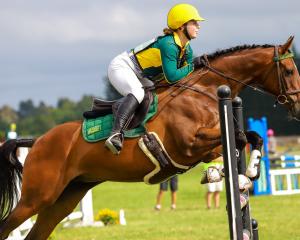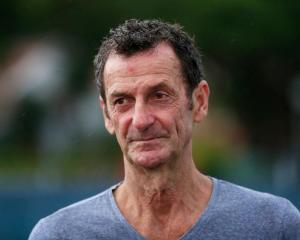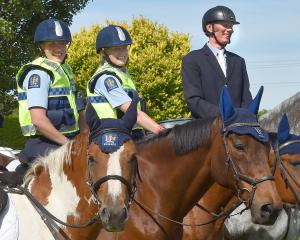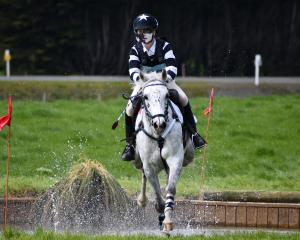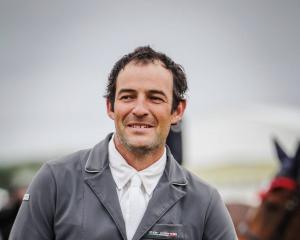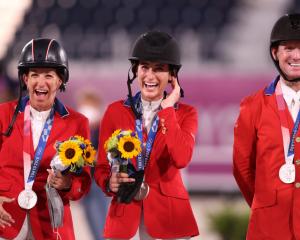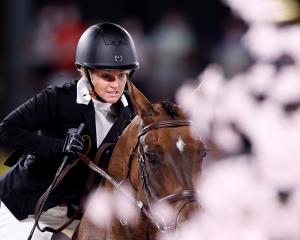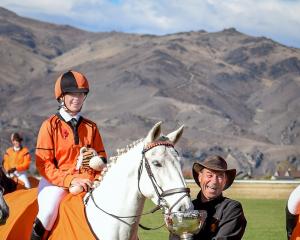
When Sir Mark Todd and Leonidas II entered the Rio Olympic team showjumping ring yesterday, a clear round would have given the New Zealand eventing team a maiden gold medal from nine attempts over 32 years.
Those dreams were shattered by a brutal denouement involving his four dropped rails.
Like the pole vault's bar, athletics' hurdles or cricket's bails, eventing punishes its participants' flaws with broken barriers. Yesterday was Todd's turn to endure rare professional pain. The clattering will echo.
After Christopher Burton rode Australia into bronze, New Zealand were left fourth, unable to add to the team silver of Barcelona or the bronzes of Seoul, Atlanta or London.
The result highlighted what a cauldron the Olympic arena can be.
The ghosts of Andrew Nicholson's nine dropped rails on Spinning Rhombus in 1992 returned.
It would be understandable if the $9.11 million in taxpayer funding from High Performance Sport New Zealand across the Olympic cycle started to weigh like handicap lead in the saddle as the pressure mounted.
That's a credit to the expectations the likes of Todd have constructed since the 1980s; his failure is an anomaly.
Todd's ride incurred 16 penalty points which, when added to Jonelle Price's eight, took them out of medal contention by 3.5 penalty points - or less than one dropped rail.
Those performances shadowed the exemplary Games debut of Clarke Johnstone on Balmoral Sensation. He went clear in his first round and conceded eight penalty points in his second to finish sixth overall on 59.30; Todd finished seventh on 62 after a clear second round of jumping; and Price was 17th on 73.50 after jolting two further rails on Faerie Dianimo.
New Zealand finished on 178.80, behind Australia (175.3), Germany (172.80) and winners France (169.00).
"What do you say," Todd lamented. "It's disappointing for me ... but I feel more disappointed for the team who had put us in a position to win a medal and it was up to me to deliver.
"My horse is normally a good jumper but he went out and froze in the atmosphere. There was nothing much I could do, I tried to relax him and stay calm, but he kept putting his head up and hollowing his back. It was awful.
"After the first [dropped rail] I tried to keep him calm because normally he doesn't drop more than one. Then two and three went down. I couldn't believe it. I was fighting to get home."
As the shock registered, the 60-year-old double Olympic gold medallist acknowledged he had not experienced anything like it since debuting at the 1984 Los Angeles Games.
"Not of my personal doing, anyway," he said. "But winning another medal was really important. To have it slip away at the last minute was devastating.
"I can only say sorry to the fans at home. The support has been amazing."
Todd hadn't made any decisions about his future or retirement.
In the circumstances, Johnstone was satisfied with his clear first round. "There was more than one nervous moment when I touched a few rails."
Germany's Michael Jung on Sam FBW joins Todd on Charisma (1984, 1988) and Charles Pahud de Mortanges on Marcroix (1928, 1932) as a winner of successive Olympic individual titles. He finished with 40.9 penalties, Frenchman Astier Nicolas took silver on 48 and American Phillip Dutton secured bronze with 51.80.
- by David Leggat


